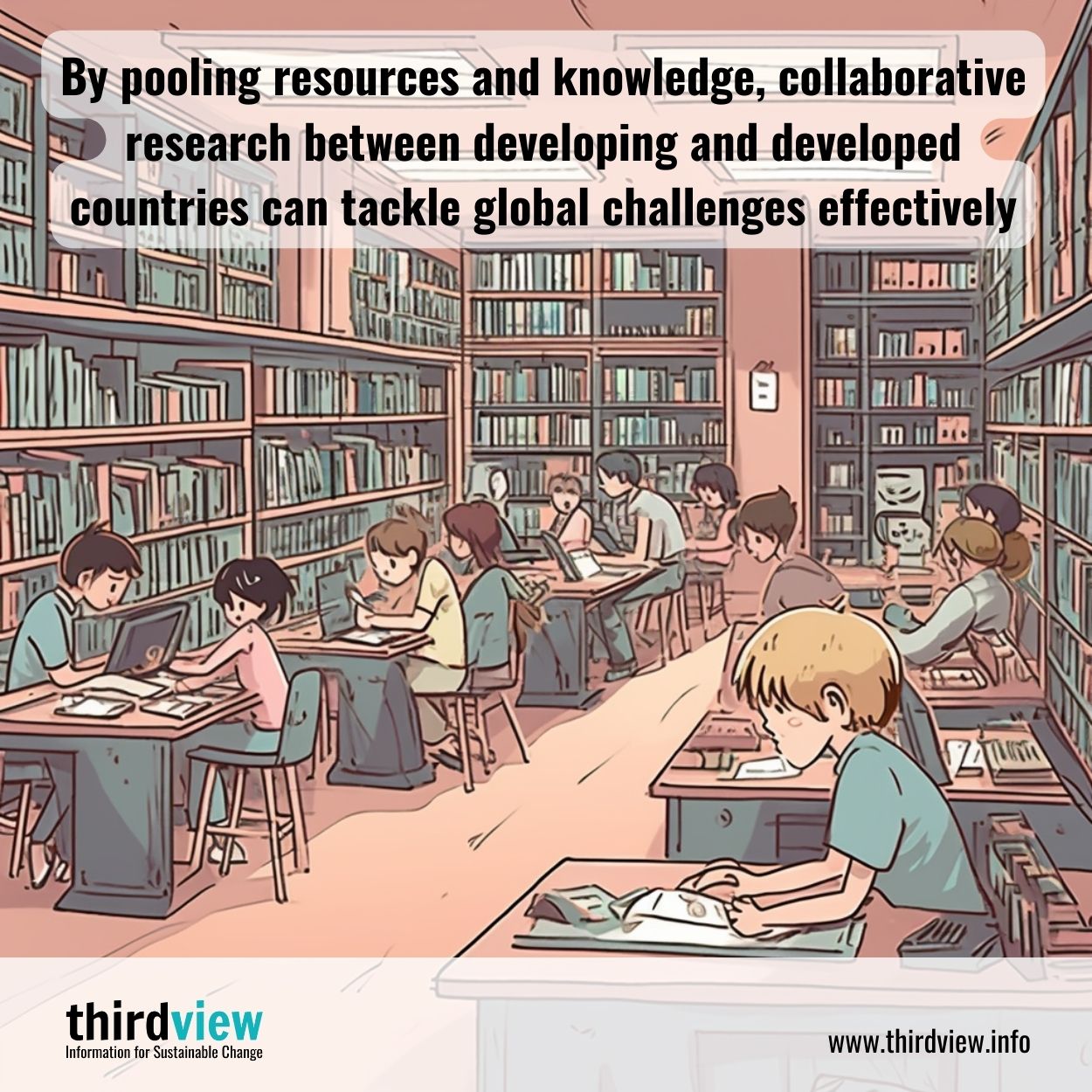Collaborative research between developing and developed countries is an essential tool for sustainable development. It’s crucial because the problems that we face today are complex, and no one country or region can solve them single-handedly. The global challenges of climate change, poverty, and inequality require collective efforts to address them. Collaborative research is an opportunity to bring together diverse perspectives, expertise, and resources to find solutions to shared problems. This blog post explores some of the benefits of collaborative research between developing and developed countries for sustainable development.
Pooling resources and expertise
Collaborative research between developing and developed countries bring together diverse resources, expertise, and perspectives to address global challenges. Developing countries, often struggle with limited resources and expertise, while developed countries have access to a wealth of knowledge and resources. When both sides come together, they pool their resources and expertise, leading to more comprehensive and effective solutions.
Knowledge exchange and capacity building
Collaborative research allows for knowledge exchange and capacity building between developing and developed countries. Developing countries have a tremendous amount of knowledge and expertise about specific local contexts and environments that developed countries can learn from. By collaborating, developing countries can transfer their local knowledge to developed countries, while developed countries can share their technical expertise and best practices.
Addressing global challenges
Collaborative research focuses on tackling global challenges such as climate change, poverty, and inequality. These challenges are complex and interrelated, and no one country or region can solve them alone. Collaborative research brings together experts from various disciplines and regions to find sustainable solutions to these challenges. This multidisciplinary approach leads to more holistic and effective solutions.
Promoting international cooperation
Collaborative research can contribute to promoting international cooperation and fostering relationships between developing and developed countries. It is an opportunity to build trust, understanding, and mutual respect. These relationships can lead to future collaborations on research and other international development projects.
Sustainable development outcomes
Collaborative research can lead to sustainable development outcomes, such as poverty reduction, improved health outcomes, and environmental sustainability. Sustainable development is essential because it emphasizes economic, social, and environmental well-being, which promotes healthy and thriving communities.
Collaborative research between developing and developed countries is critical for sustainable development. By pooling resources and expertise, exchanging knowledge and capacity building, addressing global challenges, promoting international cooperation, and achieving sustainable development outcomes, we can create a fairer, healthier, and more sustainable world. Collaborative research provides a platform for co-creating and co-designing innovative solutions that address global problems. Collaboration is the key to achieving a sustainable future, and it is time for all of us to come together and make a difference


